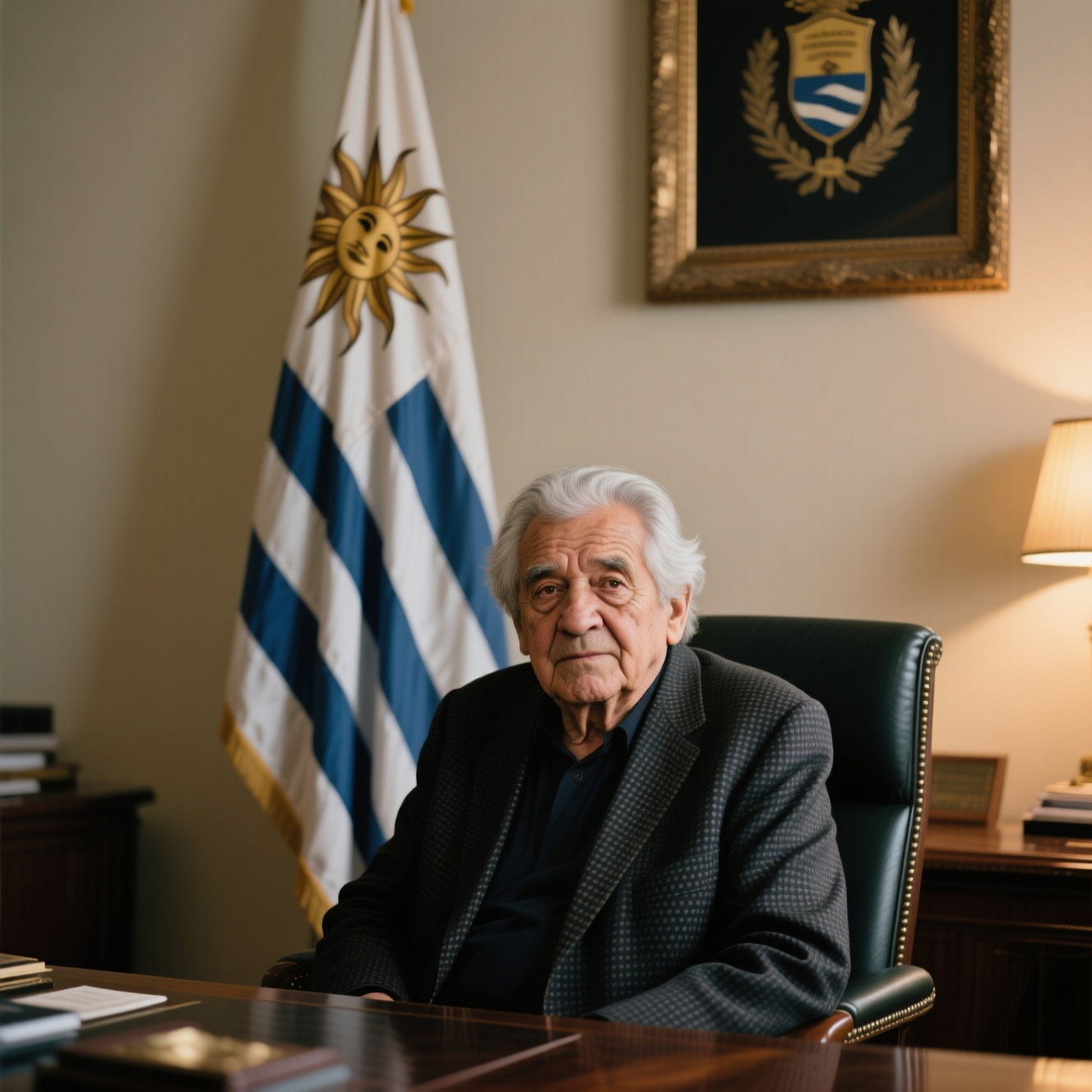José “Pepe” Mujica, born on May 20, 1935, in Montevideo, Uruguay, and passing away on May 13, 2025, was a former guerrilla fighter turned president who led Uruguay from 2010 to 2015. Widely admired for his humility and progressive reforms, Mujica’s life journey—from prison to presidency—made him a symbol of ethical leadership in Latin America.
Revolutionary Beginnings
Raised in the modest neighborhood of Paso de la Arena on Montevideo’s outskirts, Mujica joined the Tupamaros in the 1960s—a left-wing guerrilla group founded by Raúl Sendic. Initially focused on opposing state repression, the group eventually adopted violent tactics, including kidnappings, arson, and attacks on police. Mujica was arrested multiple times, convicted in 1971 for the murder of a police officer, and spent about 14 years in prison. During the 1973–85 dictatorship, he was held under brutal conditions, often tortured and placed in solitary confinement—once for two years in a well.
Democratic Transition and Political Rise
In 1985, Uruguay’s return to democracy following the failure of a constitutional referendum and mounting economic crisis led to a general amnesty. Mujica and other political prisoners were released. The Tupamaros transitioned into a legitimate political party—Movimiento de Participación Popular (MPP)—and joined the Broad Front (Frente Amplio, FA), a leftist coalition. Mujica emerged as a key leader, alongside his partner and fellow ex-Tupamara, Lucía Topolansky, who would later become Uruguay’s vice president (2017–2020). The couple married in 2005 and lived on a farm near Montevideo.
Mujica was elected to the Chamber of Representatives in 1995 and to the Senate in 2000. In 2004, as part of the Broad Front coalition, he was re-elected to the Senate, and the coalition’s candidate, Tabaré Vázquez, became president. Mujica served as Senate leader from 2005 and was minister of agriculture from 2005 to 2008.
Presidential Campaign and Election
Mujica won the Broad Front nomination for the 2009 presidential election, with economist Danilo Astori as his running mate. Although his past as a guerrilla drew criticism, and he clashed publicly with some regional leaders, Mujica remained the front-runner. In the first round of voting in October 2009, he fell short of an outright majority but won the runoff on November 29, defeating Luis Lacalle Herrera of the National Party. He took office on March 1, 2010.
Presidency and Progressive Reforms
Mujica’s term coincided with strong economic performance. Uruguay saw consistent GDP growth, rising per capita income, and low unemployment. His administration enacted bold social reforms that reshaped Uruguay’s legal and cultural landscape.
In 2012, Mujica proposed legalizing state-controlled marijuana to undermine drug cartels. The bill, approved by parliament and signed into law in December 2013, made Uruguay the first country to fully regulate marijuana nationwide. Earlier, Uruguay legalized abortion up to 12 weeks of pregnancy in 2012 and became the second country in Latin America to legalize same-sex marriage in 2013.
Though constitutionally barred from serving consecutive terms, Mujica remained highly popular. His leadership helped ensure a smooth handover to Tabaré Vázquez, who won the 2014 election against Luis Lacalle Pou, the son of Mujica’s 2009 opponent.
Personal Life and Philosophy
Beyond his policies, Mujica became internationally admired for his personal values and simple lifestyle. He refused to live in the presidential palace, instead remaining in his modest countryside home. He flew economy class and donated most of his presidential salary to charity. To many Uruguayans, his actions reflected deep sincerity rather than political theatrics.
In a 2013 interview with The New York Times, he remarked, “We have done everything possible to make the presidency less venerated,” emphasizing his desire to stay grounded and reject the pomp of office. His authenticity resonated globally, making him a rare figure in modern politics.
Death and Legacy
José Mujica died on May 13, 2025, just a week before his 90th birthday. His legacy endures not only in the laws passed under his leadership but also in the example he set for public service—marked by humility, civic virtue, and a dedication to social justice.
Mujica’s story remains a powerful reminder that ethical leadership and genuine public service can exist even in the highest political office. His presidency redefined political leadership for Uruguay and left a global imprint as a model of integrity and reform.

